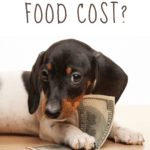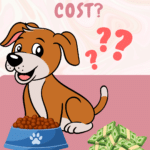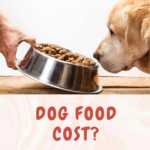Support for the blog comes from using the affiliate links below. At no additional cost to you, I may earn a commission on purchases. Thank you in advance.
For potential pet parents looking at adding a new family member, the cost of dog food is a big factor. So how much does dog food cost?
The average cost of dog food is anywhere between $200-700 a year if feeding a typical dry food diet, but this can rise significantly higher if you’re feeding your dog fresh food, raw food, or a prescription diet.
Dog food varies by type and your pup’s needs, so it’s important to dig into the specifics to know exactly how much you’ll need to spend on dog food. Let’s explore this together below!
How Much Does Dog Food Cost Per Year?
While one study shows that the average annual cost of dog food is $200-700, other studies show this can be much higher (and sometimes, a little lower).
For example, in Japan, it costs upwards of $2000 to feed a dog for a year—the most expensive country in the world for dog food. The same study showed that when all diets are taken into account, the US actually comes out at $865.50, and the UK at $686.69.
There are a few things that affect the cost of dog food, including:
- Type of dog food (a raw diet, for example, is far more expensive)
- Location around the world
- Size of dog
- Energy level of the dog and exercise needs
- If your dog has any health needs
When budgeting for your new family member’s pet food, it’s important to think about these things ahead of time. For example, a high-energy German Shepherd is likely going to cost more to feed than a more lowkey Yorkshire Terrier—and if you’re set on a fresh or raw diet, that’s going to cost more than a bag of kibble.
Asking your veterinarian ahead of time for their advice on what pet food they prefer can also be helpful for planning ahead. Vets should take your budget into account when recommending food, balancing what’s good for your dog with what’s realistic for your wallet.
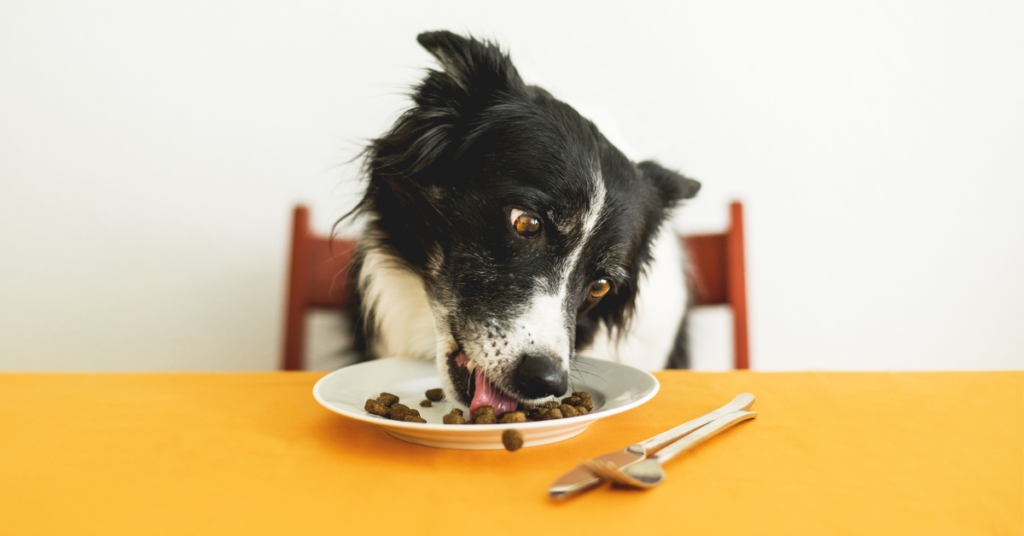
Cost of Dog Food by Diet
A study by Lemonade recently broke down the costs per type of diet for dog owners. In order of popularity:
| Carnivore | $1194 |
| Conventional | $692 |
| Grain-free | $1078 |
| Organic | $1446 |
| Keto | $1553 |
| Raw | $1727 |
| Paleo | $2554 |
| Vegan | $4274 |
At a glance, it’s easy to see that special diets cost more than a conventional diet—but how important are they?
Expensive doesn’t always mean better. For example, vegan is the most expensive by far on this list, but experts are cautious of this diet, as it could cause a dog to miss out on some essential nutrients.
Grain-free diets are also 30% more expensive than conventional diets, but the FDA has linked this diet to heart issues.
All in all, it’s important to do a deep dive into the type of dog food you’re interested in before making a decision. Higher dog food costs don’t necessarily mean a better diet for your pup. Weigh the pros and cons of each diet, consider your dog’s individual needs, and take your vet’s advice.
Some pet insurance will also help out if your dog ends up requiring a prescription diet, but make sure to read the small print carefully before signing up.
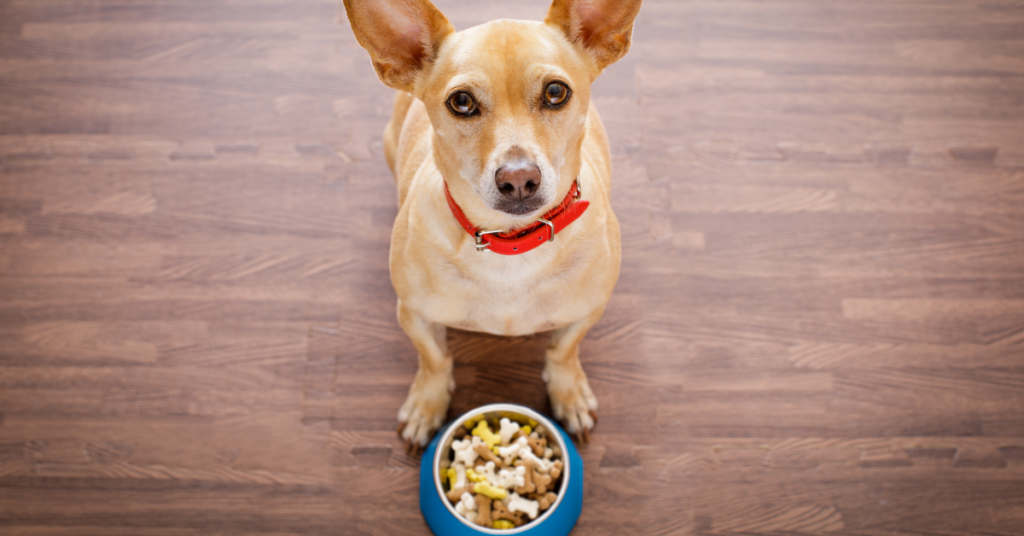
How To Buy Dog Food on a Budget
With the yearly price of a dog’s diet seemingly high and potentially daunting, feeding dogs on a budget might seem impossible to many dog owners—but it’s not.
Your own dog doesn’t have to be on a raw or fresh food diet to thrive. There are plenty of high-quality kibbles on the market. Make sure you check the ingredients, ensure there aren’t many fillers, and that protein is the main ingredient.
Pet food brands should also say if it’s been formulated to meet nutritional needs. You can look for the AAFCO (Association of American Feed Control Officials) sticker certifying that the food in the bag is complete and balanced for your pet.
Experts also recommend looking at food that’s been on the market for a while, as it suggests fewer major issues. New companies are more prone to issues, as they haven’t been tested out as much and there’s been less time for consumers who’ve found problems to report back.
You don’t have to stop there though. You can make your dog’s kibble more enriching by adding supplements to it, creating your own high-quality dog food.
Fish oil, for example, has numerous benefits for dogs. Studies have shown that it’s good for treating various diseases, as well as helping skin and coat health, so adding some to your dog’s food can really elevate that kibble.
Eggs are also a proven great supplement to kibble. Eggs can help calm an upset stomach and have other health benefits like Vitamin A, Vitamin B-12, essential fatty acids, and more, all of which can boost your dog’s health by strengthening their immune system and supporting their heart and kidney health.
Before adding any supplements to your dog’s food, always check with your vet and start with a very small amount to ensure they don’t have a reaction. Food allergies are rare in dogs, but they do happen.
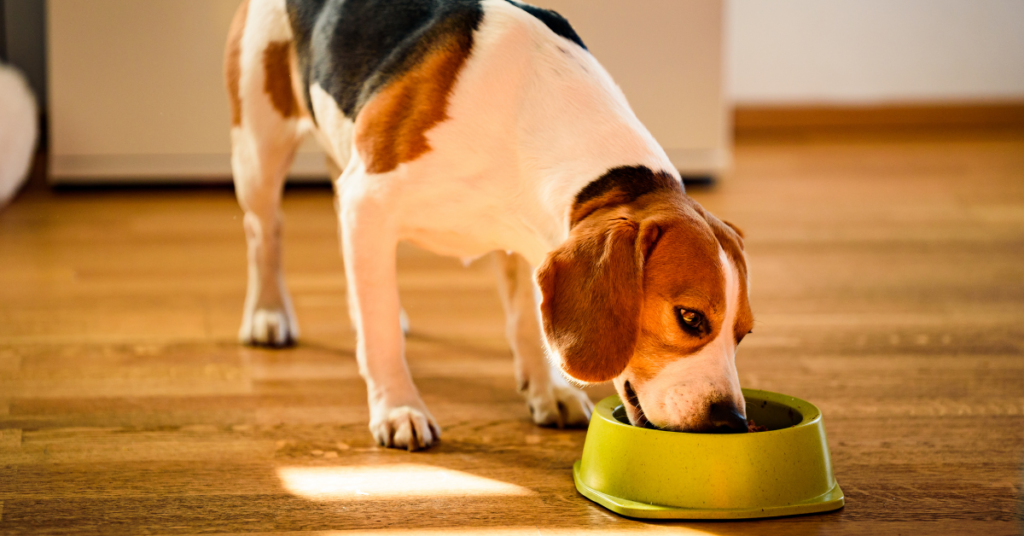
FAQ
Is it Cheaper to Cook or Buy Dog Food?
Overall, it’s cheaper to buy dog food. While it’s possible to cook nutritionally balanced meals for your pup, making sure that they have everything they need can quickly get expensive, whereas most dog food is preformulated to be healthy. This excludes certain diets like vegan or raw, which can get pricey and often must be cooked at home, or cost a lot from a specialty company.
Is it OK to Buy Cheap Dog Food?
Many owners feel guilty about being unable to afford expensive dog food, but it’s possible to feed your dog a healthy meal throughout a long and happy life without breaking the bank. Look for kibble that’s certified by the AAFCO and add supplements like fish oil and eggs wherever you can.

